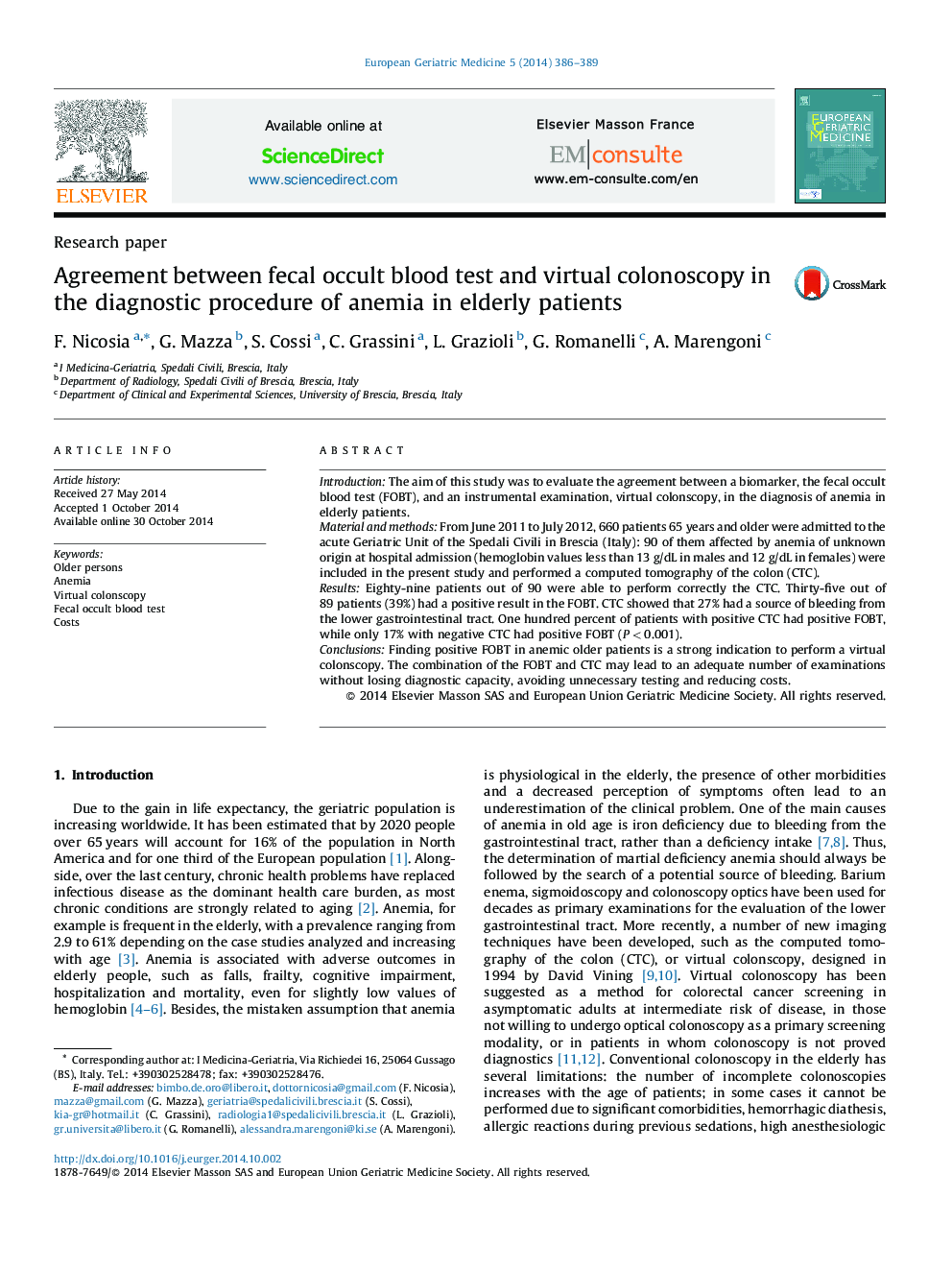| Article ID | Journal | Published Year | Pages | File Type |
|---|---|---|---|---|
| 3324059 | European Geriatric Medicine | 2014 | 4 Pages |
IntroductionThe aim of this study was to evaluate the agreement between a biomarker, the fecal occult blood test (FOBT), and an instrumental examination, virtual colonscopy, in the diagnosis of anemia in elderly patients.Material and methodsFrom June 2011 to July 2012, 660 patients 65 years and older were admitted to the acute Geriatric Unit of the Spedali Civili in Brescia (Italy): 90 of them affected by anemia of unknown origin at hospital admission (hemoglobin values less than 13 g/dL in males and 12 g/dL in females) were included in the present study and performed a computed tomography of the colon (CTC).ResultsEighty-nine patients out of 90 were able to perform correctly the CTC. Thirty-five out of 89 patients (39%) had a positive result in the FOBT. CTC showed that 27% had a source of bleeding from the lower gastrointestinal tract. One hundred percent of patients with positive CTC had positive FOBT, while only 17% with negative CTC had positive FOBT (P < 0.001).ConclusionsFinding positive FOBT in anemic older patients is a strong indication to perform a virtual colonscopy. The combination of the FOBT and CTC may lead to an adequate number of examinations without losing diagnostic capacity, avoiding unnecessary testing and reducing costs.
